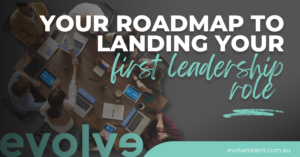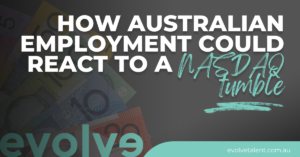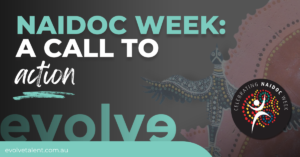After a strange couple of years, it’s not surprising that there are plenty of Australians considering a change in professional career. Many of us are questioning our satisfaction with our current roles and wondering if new opportunities might increase our day-to-day happiness. A new job could be just the ticket to a fresh start.
But before you can even start thinking about applying for a new role, you need to have your CV up to scratch. Where do you start?
For a potential employer to consider your application, you need to include more than just the right information; you need to also think about how you convey that information. Your CV’s layout needs to be both enticing and easy to read. When it comes down to it, the formatting of your CV is just as important as what it says.
Here are our top tips for how to format your CV to help you land that dream job!
Looking for more resume advice and tips on how to stand out from the crowd? Check out our resource on How to Write a Stand-Out CV.
1. Include Your Contact Details
You’d be surprised how many people leave the all-important email address and phone number off their CV. If you’re looking for the very best tips, here is our #1: make it as easy as possible for the recruiter. Don’t make them go on a wild goose chase just trying to get hold of you; include your contact details somewhere nice and clear, ideally at the very top of the page.
2. Include a Short Personal Summary
A few short lines that summarise your CV and your experience can be helpful for busy hirers. It shouldn’t be pages of writing – just a few lines summing up what’s to come. If you’re aiming for the best CV format, this should be included near the beginning of the first page.
3. Use Headings and Divide Your CV’s Sections Clearly
The best CV format is the clearest CV format! To ensure that your resume is easy to navigate, create headed sections. A good CV sample will include straightforward headings like Personal Summary, Career Summary (listing previous roles), Core Skills, Referees, etc. You can also use subheadings, or bold, underline and italics to highlight the most important features, like job titles or referee names.
4. List Jobs in Order of Most Recent
When recruiters or employers are looking to hire a new candidate, they want to know your experience. But they’re not particularly fussed on what you did thirty years ago when you first entered the workforce, as it’s likely this is entirely irrelevant for the new job you’re applying for. A well-formatted CV will have the most recent jobs at the top to showcase your skills and knowledge.
5. Consider Relevance of Roles Before Including Them
The ideal resume is the perfect length. Unfortunately, we can’t tell you the exact length of pages it should be, as that depends entirely on the industry, your experience and your time in the workforce. But all too often, hirers receive ten-page CVs detailing jobs from eons ago that have no relevance to the applied-for role.
While a part-time high school job might be applicable for a young candidate looking to enter the workforce, they’re usually not worth including if you’re past the age of 30!
6. Format Company Names and Education Consistently
There are no exact rules for how to format your CV when it comes to how to display the companies you’ve worked for previously. As long as you write their names in full and stay consistent throughout the CV layout, it shouldn’t matter too much. If you uniformly write the names, your resume will look professional and tidy.
7. Titles and Dates of Employment
Some of the best resume advice you’ll ever receive is to always tell the truth. Be transparent and factual. It can be tempting to embellish job titles to make them sound more exciting but listing your actual title as it appeared in your contract is always the best approach. There’s nothing more embarrassing than being caught in a lie during a later stage of the hiring process.
8. Don't Be Afraid To Use Bullet Points
The use of bullet points and lists is an excellent way to display all of your most relevant skills, experiences and achievements in each role. They can effectively provide future employers with a roadmap of your previous successes.
No one enjoys reading a wall of text, so bullet points are a great way to break it up into manageable chunks.
9. Showcase Your Achievements
There’s a well-known saying that it’s more effective to show rather than tell. This is particularly applicable when demonstrating why an employer should consider hiring you. Offer specific proof and detail that backs up your achievements and shows why you would be an asset for the role you’re applying for.
10. Addressing Career Gaps
Navigating a career gap can be tricky when considering how to write your resume. Fortunately, it’s not the end of the world and it’s actually very common. No matter your reason for taking a break, try to include some connection to the new role. For example, did you take a course or volunteer for a not-for-profit? Include anything that might be applicable.
If that’s not possible, you might need to get a little creative with how you list things. Don’t feel you need to tell your life story, though – keep it as short and sweet as you can. We recommend a simple line within your CV stating something like:
- Returning to the workforce after gaining new experiences and focusing on personal growth (2020-2021)
Most importantly, keep it sounding positive and future-focused.
11. Title Your CV File
Before they even open your CV, your hirer could be put off by the title of your CV. A CV is a professional document and the file name will be seen when it’s attached to emails, so make sure you name it appropriately.
Sending a document titled ‘My CV final draft (best one for admin roles)’ will immediately make you look sloppy – not a great start if you want to be shortlisted and have a chance to get job interviews. Rename it to something simple and straightforward like ‘John Smith CV’ to convey professionalism.
Summary
When it comes to writing a resume, taking a moment to think about how to format your CV is extremely important. It can make the difference between landing that big job interview or missing out (probably to the next better-formatted CV in the pile!).
If you’re looking to find your next dream role, reach out to the team at Evolve Talent. We’re a leading Australian recruitment agency that specialises in a range of professional and trade industries. From resume advice and assistance preparing for interviews to negotiating a job offer, we’re experts at guiding candidates through the process of finding their next big opportunity. Get in touch with your local office to find out more.



